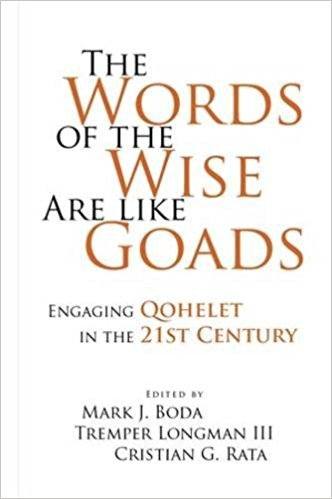
The Words Of The Wise Are Like Goads: Engaging Qoheleth In The 21st Century
“Meaningless, meaningless, everything is meaningless.” The word “meaningless” (hebel) appears more than 40 times in the book of Ecclesiastes and raises the question why a book that appears to deny meaning or purpose is included in the Bible. Many questions of interpretation as well as relevance surround the book of Ecclesiastes, including indeed the proper translation and understanding of the word hebel. If, after all, the book does examine the question of the meaning of life, what could be more important?
The present volume explores Ecclesiastes/Qohelet on many different levels: linguistic, text-critical, theological, historical, and literary. The contributors, chosen from many of the leading and up-and-coming experts on the book, present both the state of the field and their own assessment of the varied interpretive issues of Ecclesiastes. They include scholars, preachers, and philosophers. It should be helpful not only to scholars but also to all who want to study this book seriously.
The first section of this volume deals with the history of interpretation. The second section is concerned with issues of history, form, and rhetoric. Section three is about key concepts and passages. The fourth section focuses on the language and grammar of Qohelet. The last section engages practical issues of interpretation. The volume is designed to provide exposure to a variety of readers who seek to engage Qohelet in fresh ways in the twenty-first century—from historians of interpretation to biblical exegetes to linguists to theological students.

